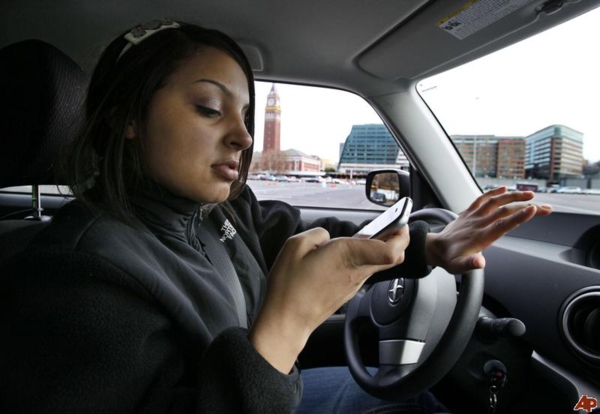Cell phone use has rapidly become one of the worst culprits of distracted driving. In 2010, the National Safety Council (NSC) estimated that drivers using cell phones caused 28 percent of all accidents and fatalities on U.S. highways. Cell phones have become highly versatile in providing visual, manual and cognitive distractions. Even at a red light, cell phone use is unsafe because drivers still have road responsibilities and need to properly respond to what’s going on around them, like a vehicle in the rearview mirror rushing up for a rear-end crash.
Along with impaired situational awareness, cell phone use and texting while driving causes drivers to have deficient visual scanning, inattention blindness, and reduced ability to appropriately react. Studies show that pedestrians or street signs, for instance, can be present but unseen when we are cognitively distracted.
Hand-free devices are not an answer, either. A University of Utah study reports that hands-free is not really that: the singular acts of dialing and of answering are very distracting and significantly increase crash risk. And for those who think they, unlike others, can safely drive while using a cell phone, another study by the university called “Supertaskers” disclosed that 2.5 percent of the population can indeed safely drive while using a cell phone. According to the study, that small percentage showed no impairments, while the remaining 97.5 percent of participants displayed substantial deficits when multitasking. But if we think we’re in the 2.5 percent, we need to realize that likelihood is not something to bet on, especially with our lives and others’ lives.
Employers should take special note of these findings, for in most states an employer is legally responsible for the negligent acts of its employees if these acts happen in the course and scope of their employment (derivative liability). An employer can also be independently liable for not having proper cell phone or texting policies in place and not enforcing those policies. This is direct liability and can result in punitive damages if the employer is also found “grossly negligent.” That is, the company knew the risks of cell phone use while driving, and showed conscious indifference to the rights and welfare of the others in this regard.
Accordingly, it pays for companies to do everything they can so that this kind of potential liability is not at any time in question. The key responsibilities of the employer here involve policy, education and enforcement.
Policy. Employers need to have a strict policy banning cell phone use, including texting and emailing, while driving. No exceptions. A discretionary policy won’t cut it for the courts. A key here is getting employees to buy into the policy. Suddenly springing a policy on employees tends to foster poor respect toward it, according to the NSC. A good approach would be employee meetings where the need for the policy is presented with a healthy discussion of potential barriers and a request for employee-driven solutions. It’s also important the employees see that top management adheres to the same policy.
Education. That cell phone use while driving has been shown to seriously impair 97.5 percent of drivers should be mentioned among other findings that show employees that you are protecting them, the public and the business with such a policy. The NSC offers some great educational resources and testimonials to share.
Enforcement. Employers need to enforce the policies with stringent penalties and employee monitoring, including readily available blocking technology that can block calls, texts and emails while a vehicle is moving. A couple systems are http://www.zoomsafer.com and http://www.getizup.com.
Employers cannot be seen as recognizing a significant danger but not significantly addressing it. Employers need to show they are genuinely concerned and have taken all the steps necessary to genuinely meet the concern.
Mark Fryman is an attorney at the law firm of Starr Austen & Miller, where they specialize in car and truck accident cases. When he’s not researching potential issues for car accident lawyers, he enjoys running, playing cards and watching the Indianapolis Colts win on Sundays.

